- Search
Kairos Power’s Iterative Approach to Fuel Development
December 16, 2024
Blog
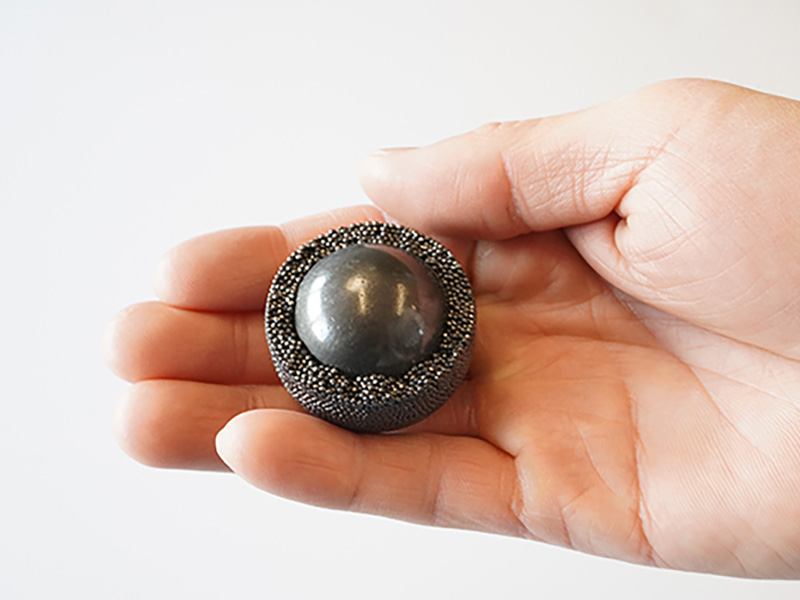

Kairos Power’s Iterative Approach to Fuel Development
The foundation of Kairos Power’s advanced reactor technology is a special fuel form that works with our molten fluoride salt coolant to enable robust, inherent safety while simplifying the reactor’s design. The Kairos Power Fluoride Salt-Cooled High-Temperature Reactor (KP-FHR) uses TRISO (tristructural isotropic) coated particle fuel, a proven technology developed by the Department of Energy (DOE) at U.S. national labs.
Each poppyseed-sized TRISO particle consists of a uranium fuel kernel encased in three ultra-tough ceramic layers that trap radioactive fission products. TRISO particles cannot melt in a reactor and can withstand extremely high temperatures without damage. DOE has dubbed TRISO “the most robust nuclear fuel on earth.”
Kairos Power embeds TRISO particles into spherical graphite fuel pebbles similar to those used in high-temperature gas reactors but with some important differences. Our golf-ball-sized pebbles are smaller and feature a novel design optimized for KP-FHR, with a low-density graphite core surrounded by an annular fuel matrix.
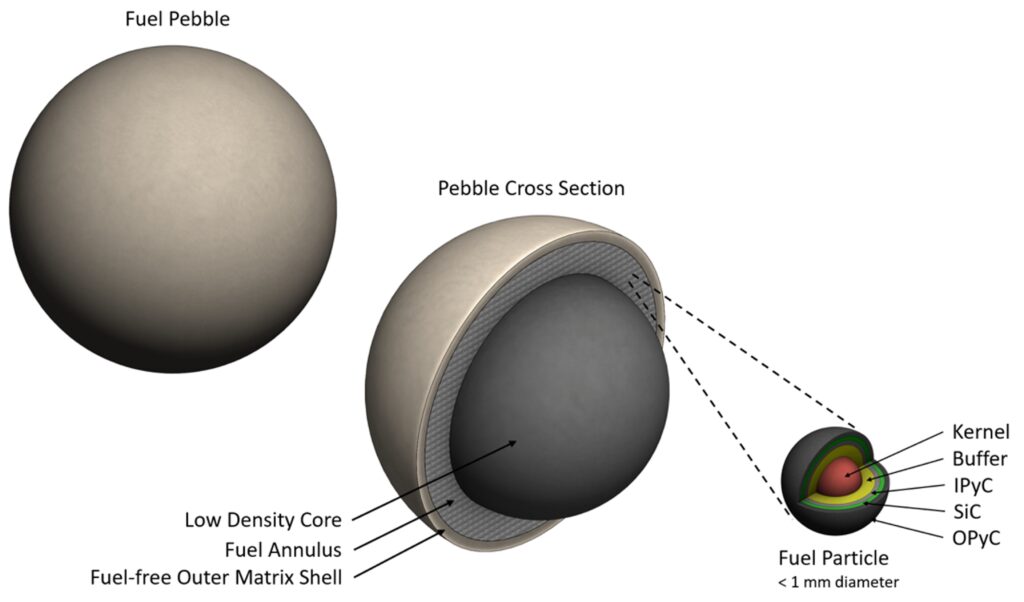

This small but mighty fuel form offers incredible energy density. A pebble that fits in the palm of your hand can produce more energy than burning four tons of coal.
So, where will we obtain this remarkable fuel? As we set out to deploy Kairos Power’s first reactors, we are taking a stepwise approach to develop the capability to produce KP-FHR fuel in-house and establish commercial fuel fabrication for the fleet. In this article, we’ll explain our strategy.
Fuel Fabrication: From Lab to Pilot Scale
Kairos Power aims to vertically integrate the production of critical KP-FHR components, including fuel, to gain better control of the supply chain and help drive toward cost certainty. We are growing our manufacturing capabilities in an iterative fashion, consistent with our technology development approach.
At Kairos Power’s Manufacturing Development Campus in Albuquerque, New Mexico, our Fuels team is working through early iterations to develop manufacturing processes for annular TRISO fuel pebbles with support from the DOE Advanced Reactor Demonstration Program. We will build on the lessons from these iterations to establish fuel production for the Hermes demonstration reactor series and the commercial reactors that will follow.
Three facilities in New Mexico will be critical to this effort: The Pebble Development Lab (PDL) and TRISO Development Lab (TDL) on Kairos Power’s Albuquerque campus, and the Low-Enriched Fuel Fabrication Facility (LEFFF) at Los Alamos National Laboratory, where we will implement the processes from PDL and TDL to produce fuel for Hermes.
Pebble Development Lab
In PDL, engineers have prototyped and are now optimizing the production of annular graphite fuel pebbles. We started with solid graphite pebbles, producing over 30,000 for Kairos Power’s first Engineering Test Unit (ETU 1.0) before introducing more complexity to the product. Next, we demonstrated and mastered the ability to produce the annular pebble fuel form using surrogate TRISO particles made of non-nuclear materials. We optimized that process to improve the pebbles’ strength and performance. Now, we are focused on accelerating production by automating equipment and advancing characterization methods to improve quality control.
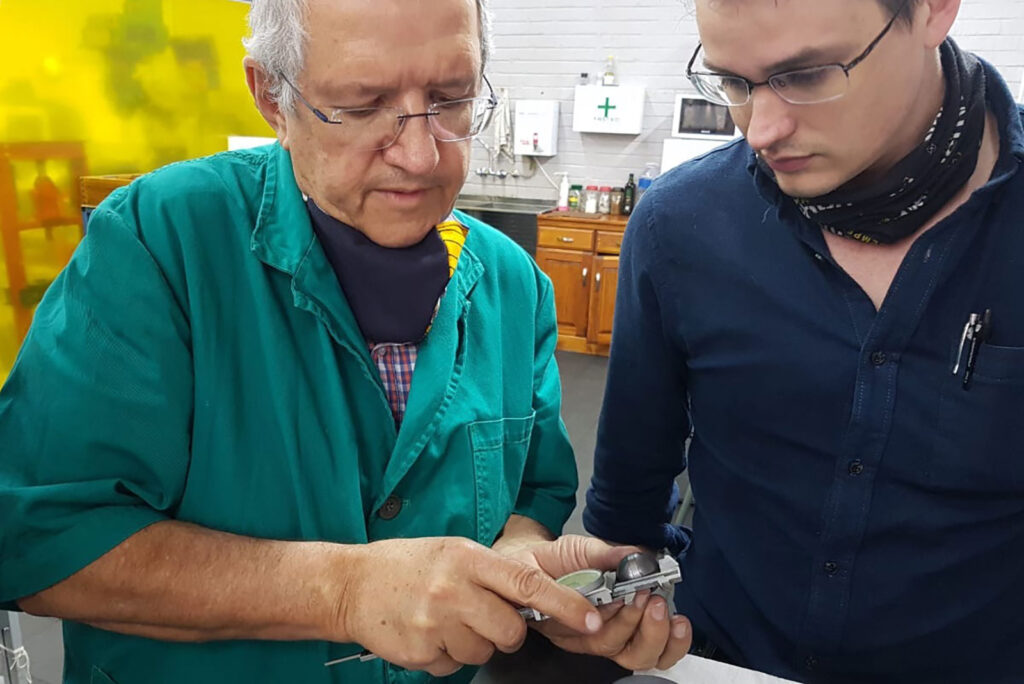
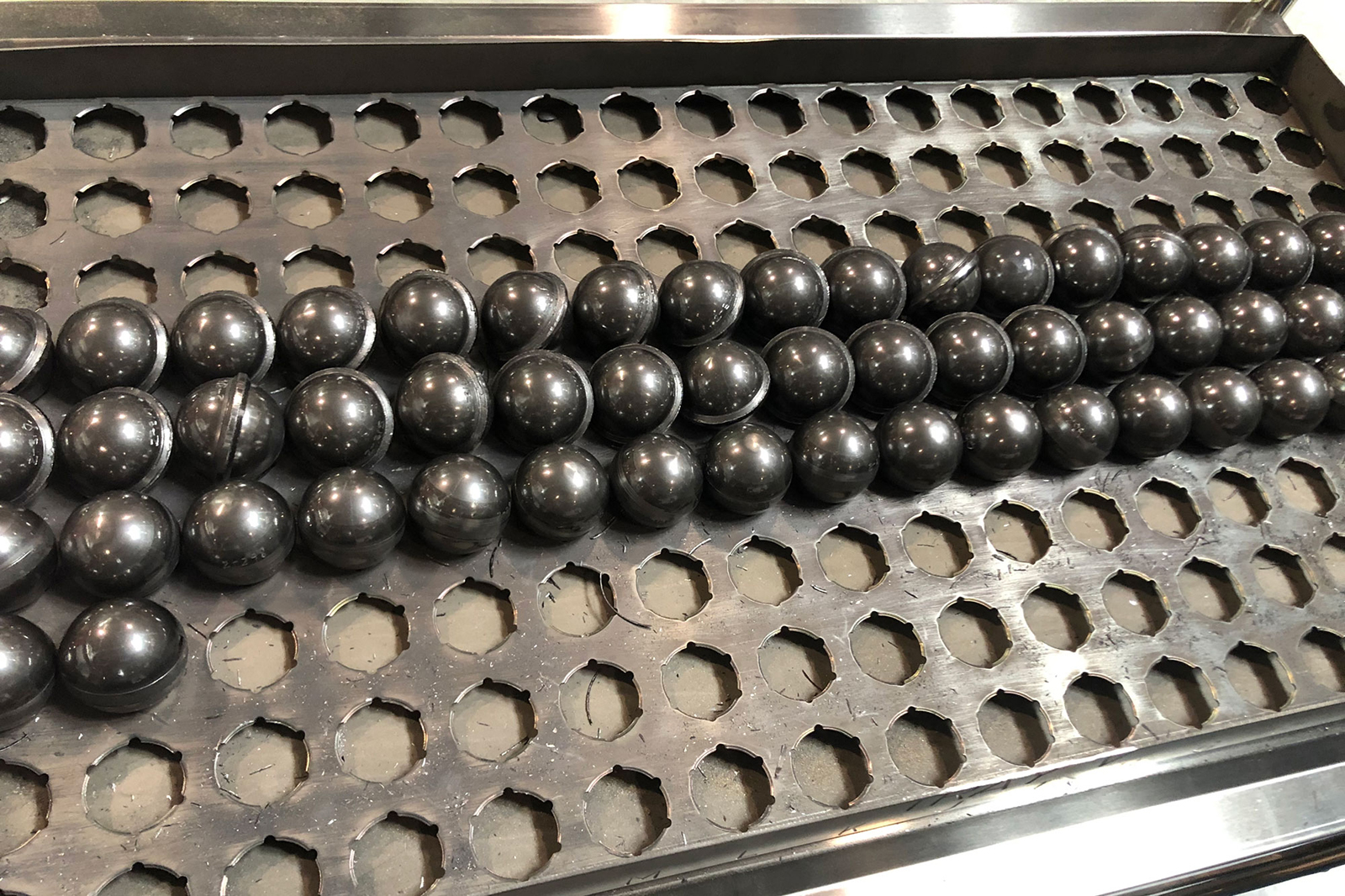
TRISO Development Lab
In TDL, we will demonstrate the process equipment and manufacturing procedures to make ceramic-coated TRISO particles using unenriched natural uranium – a surrogate for the High Assay Low-Enriched Uranium (HALEU) that will be used in our reactors.
TDL will host a Kernel Development Lab where we’ll demonstrate the casting process to make spherical kernels of uranium oxycarbide and a Coater Development Lab with a prototype plant that will apply layers of ceramic to form the kernels’ durable shells.
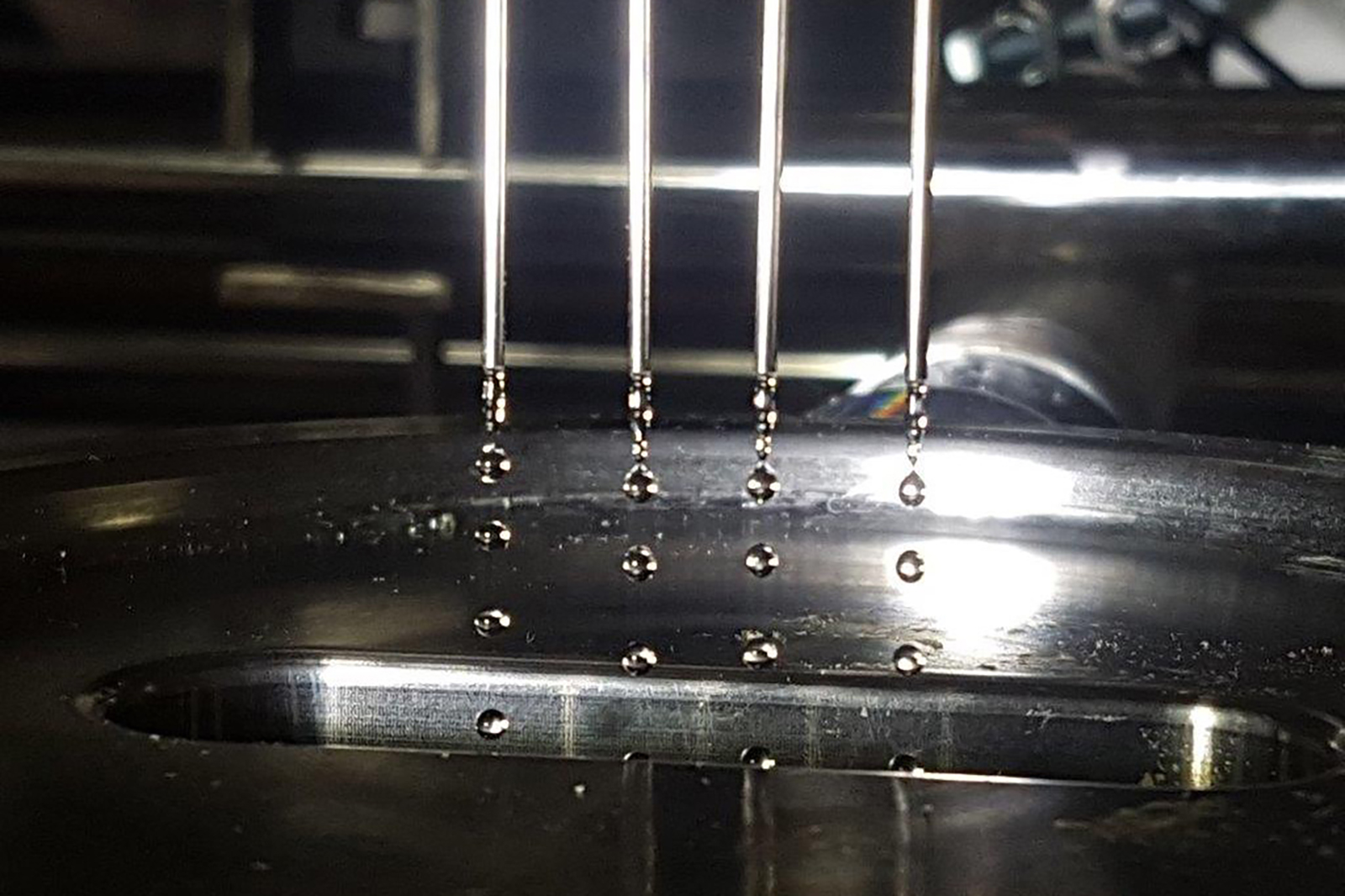
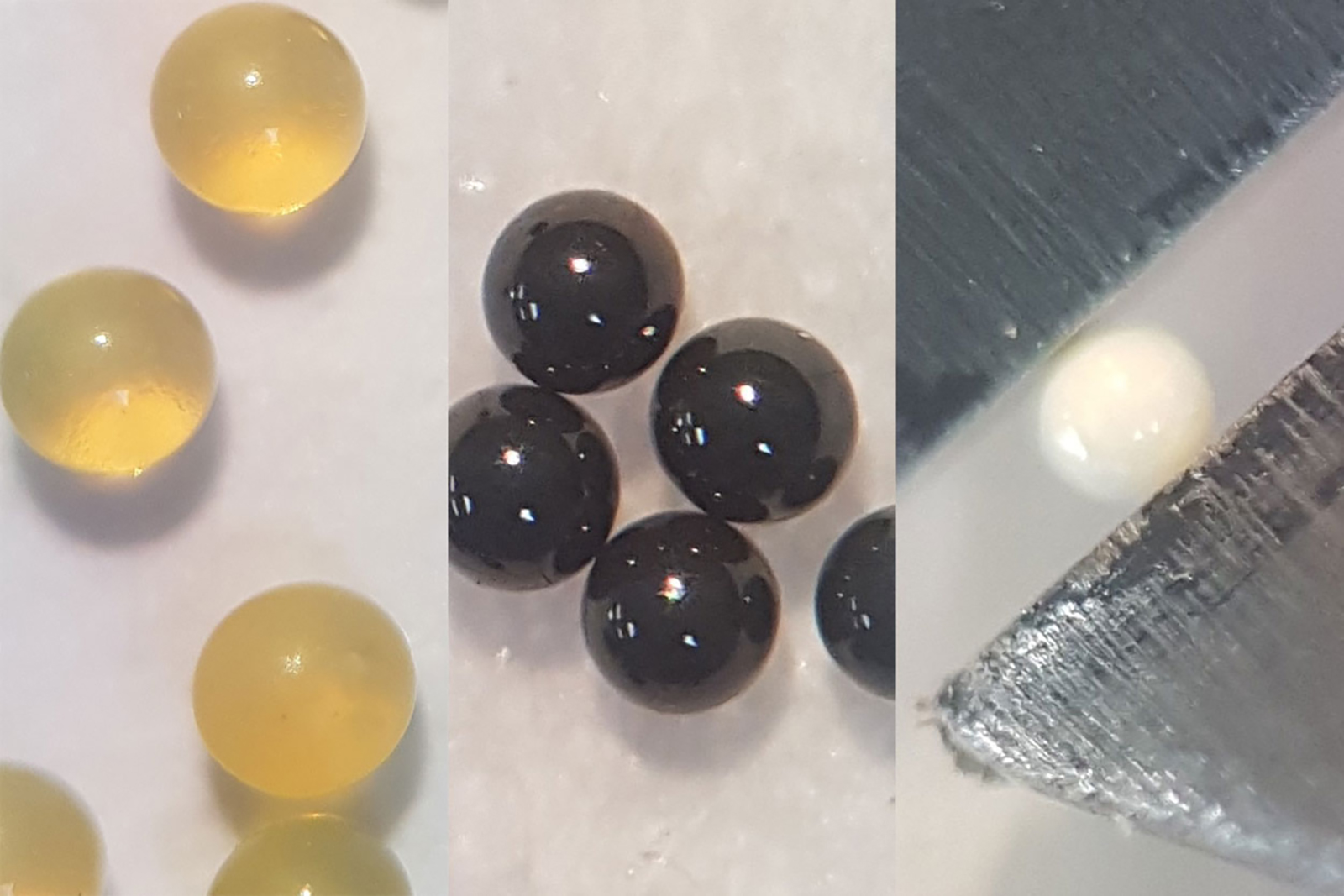
Our team is completing the fabrication of kernel and coater plant equipment skids in Kairos Power’s Modular Systems Facility and will soon be ready to install them in TDL.
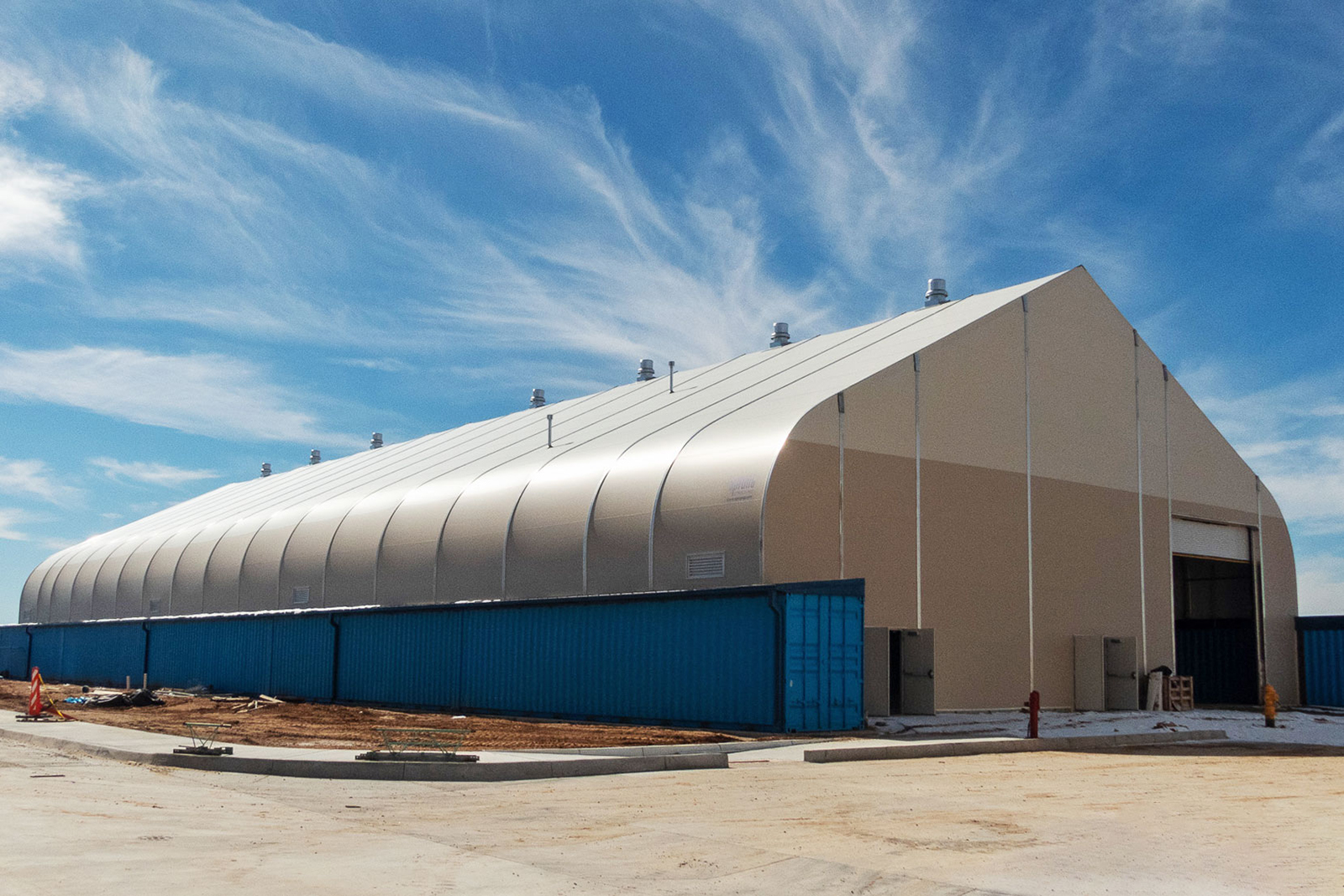
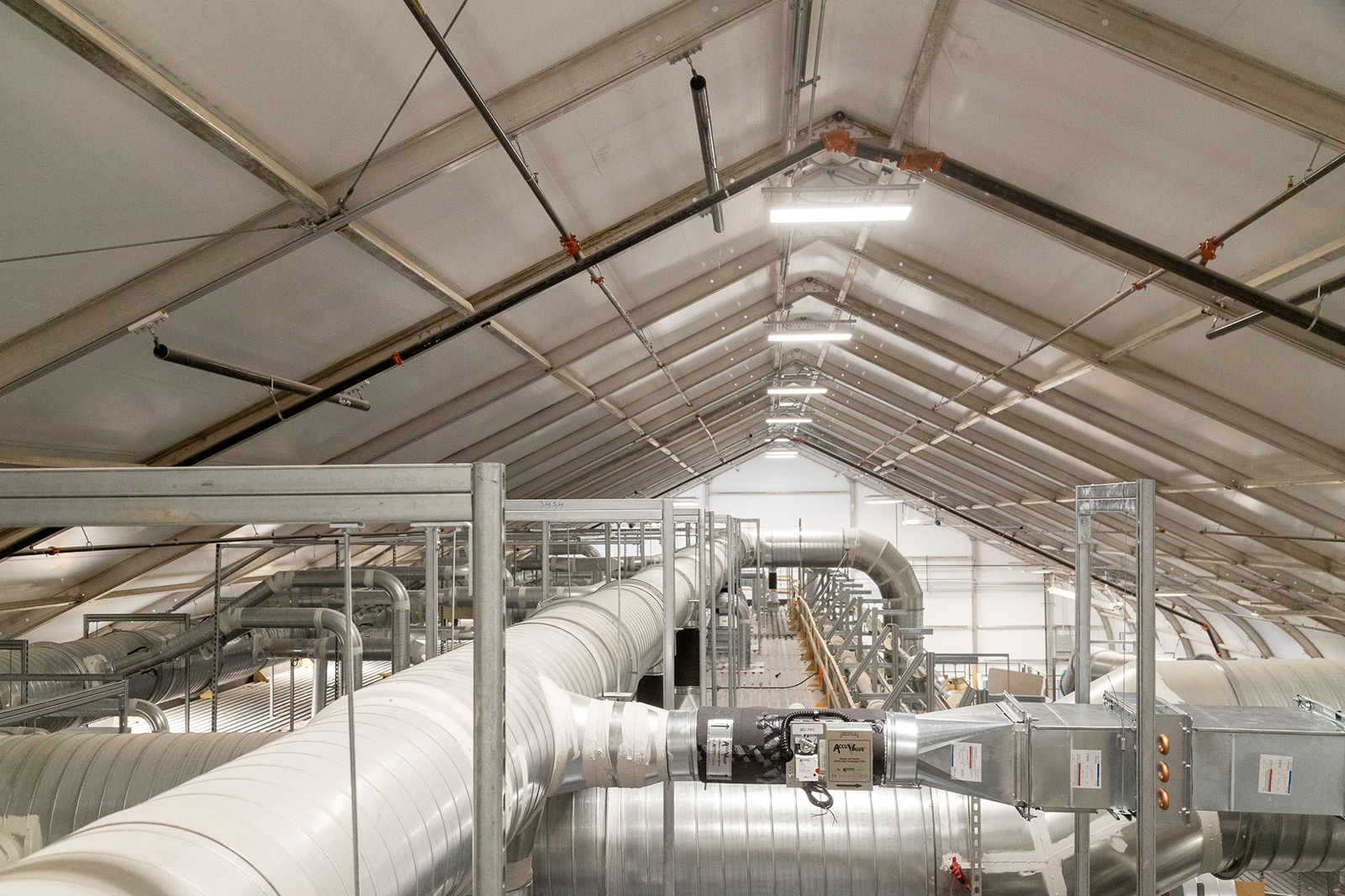
Working with natural uranium in TDL will allow us to prove manufacturing processes in a less restrictive environment to help us move quickly and further iterate on process design. In compliance with our New Mexico radioactive material license, no enriched uranium or special nuclear material will be used in Kairos Power’s Albuquerque facilities.
Los Alamos Low-Enriched Fuel Fabrication Facility
Our next step will be manufacturing HALEU annular TRISO pebbles in a fuel fabrication facility approved for handling enriched uranium. In 2022, Kairos Power signed an agreement with Los Alamos National Laboratory to become the first customer of the lab’s Low-Enriched Fuel Fabrication Facility (LEFFF), where we’ll replicate the manufacturing equipment and operating procedures demonstrated in PDL and TDL to start production of enriched fuel for Hermes by 2026. We have applied to DOE for an allocation of HALEU to make this fuel.

The existing LEFFF infrastructure is now undergoing renovation to support the build-out of our pilot-scale HALEU TRISO fuel production line. Once built, we will commission the pilot plant using depleted uranium to validate its operation before introducing HALEU. Los Alamos employees will perform the work with direction and support from the Kairos Power Fuels team to enable continued learning and optimization.
Fueling the Commercial Fleet
While our current focus is on delivering the Hermes demonstration reactor, our Fuels team is already looking ahead to the future. Kairos Power plans to build a commercial fuel fabrication facility that will integrate lessons learned from our development facilities and Los Alamos to establish fuel production for the fleet.
In parallel with developing commercial fuel fabrication infrastructure, Kairos Power is engaging with DOE, enrichment companies, and others in the industry to support efforts to expand commercial HALEU production in the U.S. We have signed a memorandum of understanding with Urenco to collaborate on sourcing HALEU for the fleet, and we are exploring alternate solutions for the interim until the material is more widely available. KP-FHR operates most efficiently with HALEU; however, it can use a range of enrichment levels, including low-enriched uranium plus (LEU+). We believe multiple options exist for us to demonstrate the technology’s viability, which will send a strong customer demand signal to spur new HALEU enrichment capacity.
Conclusion
Kairos Power’s fuel development strategy illustrates our commitment to growing in-house manufacturing capabilities through iterative learning cycles to reduce our reliance on external suppliers and gain certainty over cost, quality, and schedule. It’s a fundamental part of our approach to deploying a technology that is safe, reliable, and affordable to enable our clean energy mission and create a more sustainable future.

